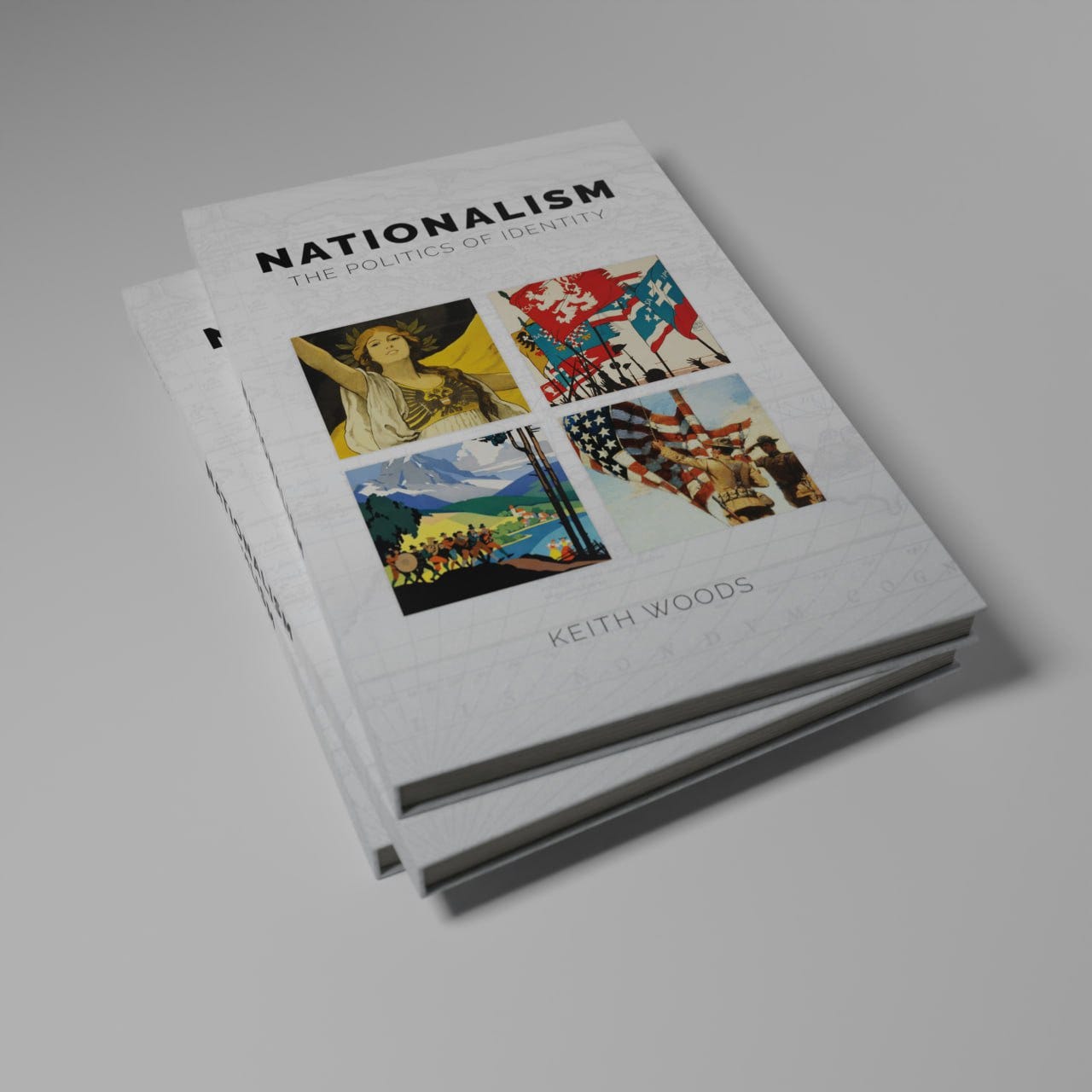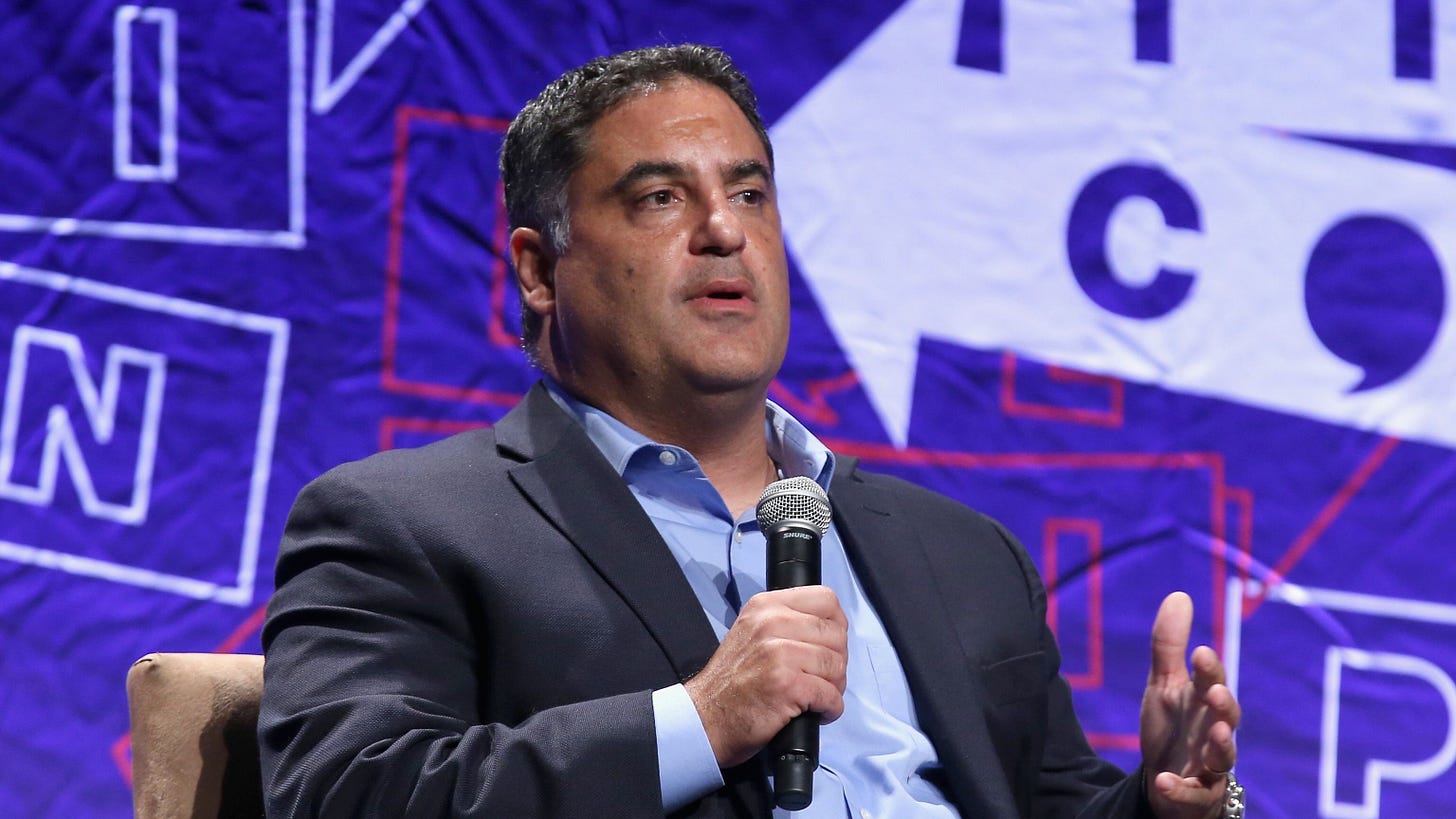My book Nationalism: The Politics of Identity is now available on Amazon. If you enjoy my writings, please consider purchasing it and leaving a positive review.
The left is entering a time of realignment. Donald Trump’s landslide victory over Kamala Harris is a major alarm call that something is wrong with the formula progressive elites have used to reliably sell their package to voters for decades. And it’s not just the US. Throughout the Western world, there is a rising tide of populism. The rise of Le Pen’s National Rally in France and the AfD in Germany, and the sudden emergence of Reform in the UK and the potential for a Nigel Farage-led government in the next decade are all inducing anxiety in the liberal establishment.
This is far from the nadir of the left, of course: regardless of whatever setbacks the political left faces now, the attitudes of young people are still far to the left of their parents and grandparents. But it may be the end of a certain kind of leftist, symbolised by the comprehensively defeated Harris in the US and Justin Trudeau in Canada, who resigned to save his party an even more comprehensive defeat. In the UK, it is Keir Starmer, who managed a historic 49-point drop in approval just three months after leading Labour to a landslide victory.
Starmer was labelled “Mr. Rules” earlier in his career. A former barrister and chief of the UK’s Crown Prosecution Service, he represents well the kind of loyal servant of neoliberalism that values above all the international rules based order and its expression through a vast matrix of human rights law, leftist bureaucracies and NGO’s (Harris is also a former prosecutor). It’s the cultural bolshevism of the 1960s counter-culture in a more apolitical, technocratic form. Progressives like this embraced the radical leftism of millennials and zoomers raised on Tumblr and passionate about pronouns; they oversaw the establishment left’s embrace of all the tenets of wokeism, antiwhiteism and DEI policies, all while maintaining the Third Way economic consensus of the 90s.
Many of these politicians are trying to adapt and get the stench of wokeness off them: both Trudeau and Starmer gave speeches last year telling their countries that mass-immigration had become out of control. Even Harris tried hard to center her campaign on a more digestible populist message and avoided “the deplorables” messaging of Hillary Clinton.
Another aspect of this golden-age of consensus progressivism was its complete support from the super-rich. Post-hippy new rich philanthropists — many of them also cultural figures like Richard Branson — championed liberal humanitarian causes and liberalism itself. While in an earlier phase of the cultural revolution, famous rockstars and actors may have taken an adversarial stance to the stuffy conservative establishment, activist-philanthropists like Bono and Geldof joined hands with Bush and Blair to promise progressive reform rather than revolution. Nothing represents this period of liberal boomer dominance better than when in 2005 Geldof organised Live 8, bringing together a thousand musicians to pressure the G8 conference with such idealistic goals as easing trade restrictions on African countries and forgiving portions of their debt.
Even though the super-rich may be split on party loyalty, they all basically shared the same set of beliefs and faith in rules-based progressivism. But now, with the emergence of “Little Tech” and the revolt of powerful billionaires like Elon Musk against the progressive agenda — specifically wokeism and DEI policies — this feeling of consensus is changing.
In the past, billionaire patrons of the Republican Party kept a low profile. Big time philanthropists like Bill Gates worked to keep their messaging as bipartisan and apolitical as possible. During the Biden administration, some of the super-rich have shown more willingness to attack the pillars of the progressive agenda on libertarian grounds, and a willingness to use their wealth to do something about it. This really activates a certain portion of the left that still like the idea of being the representatives of the salt of the earth working masses against the greed of oligarchs and their political puppets. It’s that portion of the left we’ll be hearing a lot more from in the coming years.
What is the Chud Left?
When Trump took office in 2017, it was the beginning of “The Resistance”. This was the left under the leadership of the woke left: shrieking social justice warriors, antifa riots, celebrity-led Twitter hashtags, pussy hats, hysteria over Trump’s supposed support for neonazis. In 2025, Trump’s inauguration was an altogether more sombre affair for the left. In this time of soul-searching, some voices have suggested the left take a much different approach to the Trump presidency: enter the Chud Left.
The Chud Left is populist progressivism defined by its rejection of special interests and a post-woke posture. The Chud Left resents the Woke Left for pivoting the left away from its core issues like healthcare, workers rights and wealth inequality to hyperfocus on intersectional identity issues, something the Chud Left views as reflecting the luxury-belief concerns of an elitist leadership out of touch with the struggles of workers.
The Chud Left blames the Woke Left for the disastrous 2024 election performance and the lack of tangible progress made on leftist economic issues since Occupy Wall Street — a highlight for the Chud Left after which wokeism became the dominant force in leftist politics. This is not to say that the Chud Left doesn’t support all the same rights as the Woke Left on principle, but they will defend transgenders and other minorities on libertarian grounds that are palatable to the majority center without special catering to all their minority grievances.
While much of the left responded to the second Trump victory by blaming disinformation or the callousness of voters, some voices have emerged from the Chud Left and used this as an opportunity to challenge Woke Left dominance.
Chief among them has been The Young Turks’ Cenk Uygur and Anna Kasparian. Their own evolution represents well the path much of the left will follow on messaging. In 2016, they were in tears over the fascist Trump takeover. Now, having seen the failure of The Resistance first-hand, they guest on popular debate channels to downplay leftist hysteria over Trump. They seek common ground with their conservative opponents and frame Trump’s win as an expression of general anti-establishment sentiment that is healthy but misdirected. And rather than attacking Trump or his supporters, they save all their ire for the decrepit Democrat establishment that allowed this to happen and the oligarchs that are still fleecing the public with the aid of both parties.
Anna Kasparian’s hard turn against the Woke Left came when she shared a story of being sexually assaulted by a homeless man and faced a barrage of criticism from the woke for stigmatising her “unhoused neighbours” and promoting racist tropes despite never mentioning the man’s race. Dealing with crime and keeping women safe should be a popular platform for the left, but once again the elitist signaling of the woke was preventing any outreach on this issue.
Another significant moment in the emergence of the Chud Left was the Teamsters Union President Sean O’Brien speaking at the Republican National Convention, where he denounced the Biden administration for hurting his workers’ interests through illegal immigration. O’Brien: a brawny Irish union leader and lifelong Democrat, seems like an ideal type of the Chud Left.
While the Woke Left was typically willing to set aside its criticisms of party leadership to focus on the more grievous threat of conservative fascism, it is characteristic of the Chud Left to focus most of its criticism on its own side. O’Brien being willing to finally abandon the Democrat Party altogether when he was most needed will set the trend for the emerging kingmakers in the Chud Left coalition. As expressed by an exasperated voice of the Woke Left, Unions under the leadership of chuds like O’Brien will:
Throw concerns about climate change, and immigrant rights, and LGBTQ rights out the window if it means that members can benefit from some trade policies and job creation programs.
But the best representative of the Chud Left is John Fetterman, a 6’8, tattooed Senator whose entire demeanour exudes a working class contempt for professional politics — Fetterman most recently made headlines for showing up to Trump’s inauguration in a hoodie and gym shorts.
When Fetterman secured a surprise electoral victory in 2022, many on the left saw it as a signal that a class-based politics could win back Trump voters to the left, as Fetterman ran a campaign of economic populism. When Trump won again, Fetterman was complimentary of his voters, paid a visit to Trump at his home of Mar-a-Lago, and shot down the Woke Left’s use of the term “fascist” to describe the incoming president because: “fascism – that’s not a word that regular people, you know, use.”
Chud Leftists like Fetterman are suddenly finding themselves atop a wave generated by a number of factors. The core of it is the electorate’s rejection of the DEI Democrats for another Trump term. The second is the hostility of Jewish elites — who hold great power within the Democrat Party — to the Woke Left since October 7, 2023. Finally, the populist voters of the Chud Left are of far greater importance to leftist parties than other voting demographics, and this is especially true in the US. The Democrats lost all swing states to Trump, and these are disproportionately regions where moderate voters with populist economic concerns dictate voting patterns.
There is also a broader, intangible “vibe shift” where people across the political spectrum are tired of the professional politics of old. Ours is an age that craves authenticity, something Trump tapped into well with his accessibility to dudebro podcasters and his stint in McDonald’s. The left has also become more misanthropic and cynical of the American-led world order that delivered so much for them: if the system is so rotten then its lifetime servants, bureaucrats and reformers aren’t worthy of much respect either.
In a recent piece for Unherd, Aris Roussinous wrote about this shift away from their mode of politics:
There are few more vivid illustrations of the ongoing “vibe shift” away from the post-Cold War norms of Western governance and towards the Right-wing restoration of national sovereignty than the 2001 romcom Bridget Jones’s Diary. In the film, the main love interest — the idealised image of the perfect man, summoned up from the depths of the New Labour unconscious — is a human rights lawyer, who may or may not be based on Keir Starmer. Indeed, in a crucial plot point, said love interest secures the affection of the heroine and the adulation of the tabloid press for halting the Government’s removal of an asylum seeker. As these narratives go, Starmer must ruefully observe, it’s a relic of a vanished world.
The left’s ideal type in the 2000s was a human rights lawyer who was passionate about helping asylum seekers.
Today, it’s the murderer of a health insurance CEO.
The left will find new energy and unity around hating the rich, and now at last in the midst of a new Gilded Age and the emergence of the “broligarchy” around Donald Trump they have the enemy they always wanted — obscenely rich dorky capitalists buying control of government while trampling on workers’ rights.
Speaking as a nationalist, should we be optimistic about the rise of the Chud Left? It’s one sign that the consensus politics of the early 2000s is on the decline, and that opens up a lot of possibilities. If the left moves away from wokeism and antiwhiteism and focuses more on economic populism, that can create competition between the left and right for a growing share of populist voters who can afford to demand more with more on offer from establishment politics. We’ve already seen neocons lose out to natcons in the fight over the direction of conservatism. The left may be facing its own version of this process, and if it comes up with a popular package based around economic populism it will weaken the neocon influence over the right even further.
The more concerning aspect of this would be the masses tolerating diversity and mass-immigration if they are placated enough with soft populism and a left establishment that is less explicitly hostile to them. In general though, I don’t think it’s smart to take an accelerationist stance. We should treat the emergence of the Chud Left as part of a broader retreat by the left to more defensible ground, and use this as motivation to push even harder. Insofar as this moves us nearer a future where all political factions must appeal to White interests to survive, we should view it as modest progress.











